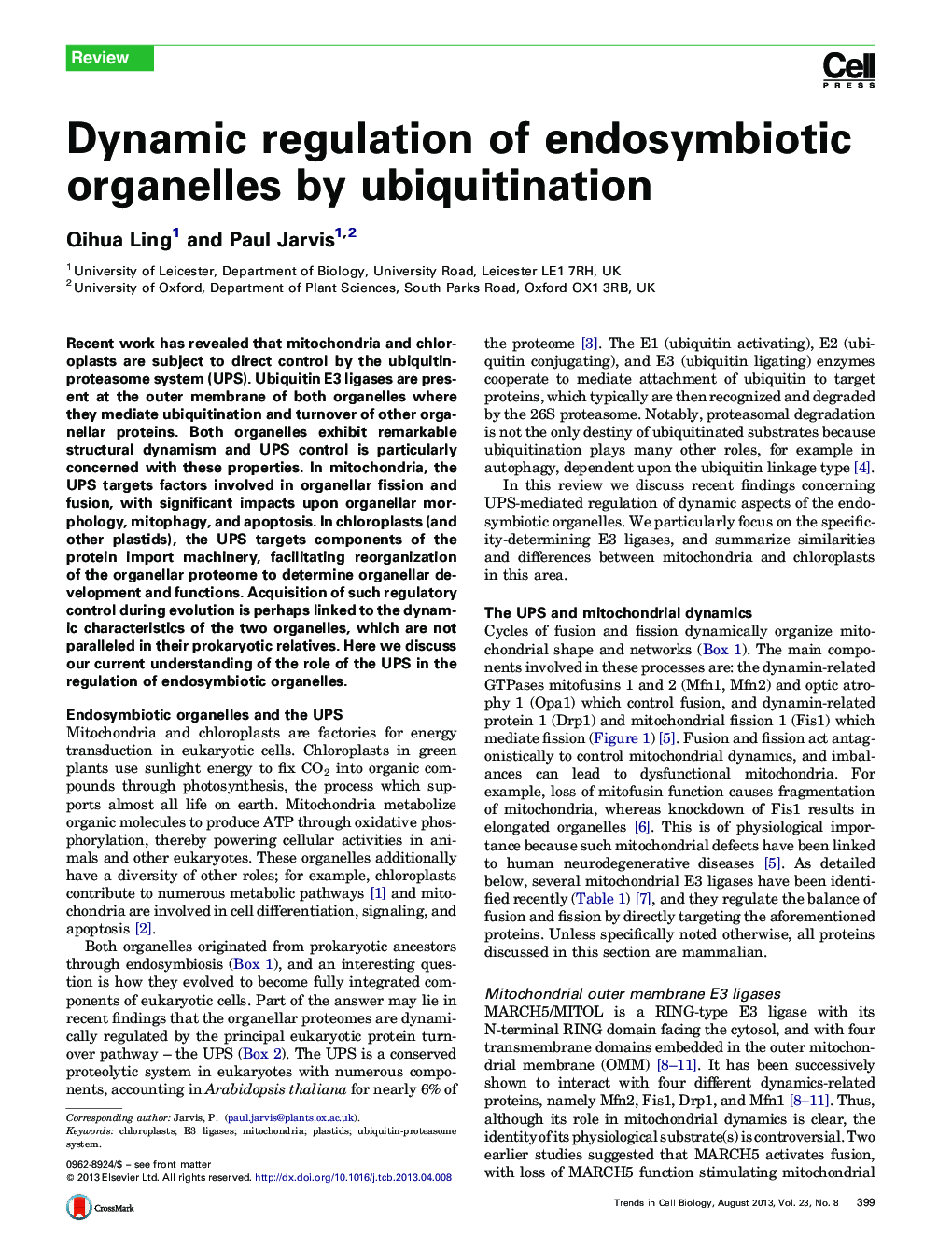| Article ID | Journal | Published Year | Pages | File Type |
|---|---|---|---|---|
| 2204468 | Trends in Cell Biology | 2013 | 10 Pages |
•Endosymbiotic organelles are directly controlled by the ubiquitin-proteasome system.•Ubiquitination controls dynamic aspects of both mitochondria and chloroplasts.•In mitochondria, ubiquitination controls organellar fission and fusion.•In chloroplasts, ubiquitination controls the import of nucleus-encoded proteins.
Recent work has revealed that mitochondria and chloroplasts are subject to direct control by the ubiquitin-proteasome system (UPS). Ubiquitin E3 ligases are present at the outer membrane of both organelles where they mediate ubiquitination and turnover of other organellar proteins. Both organelles exhibit remarkable structural dynamism and UPS control is particularly concerned with these properties. In mitochondria, the UPS targets factors involved in organellar fission and fusion, with significant impacts upon organellar morphology, mitophagy, and apoptosis. In chloroplasts (and other plastids), the UPS targets components of the protein import machinery, facilitating reorganization of the organellar proteome to determine organellar development and functions. Acquisition of such regulatory control during evolution is perhaps linked to the dynamic characteristics of the two organelles, which are not paralleled in their prokaryotic relatives. Here we discuss our current understanding of the role of the UPS in the regulation of endosymbiotic organelles.
